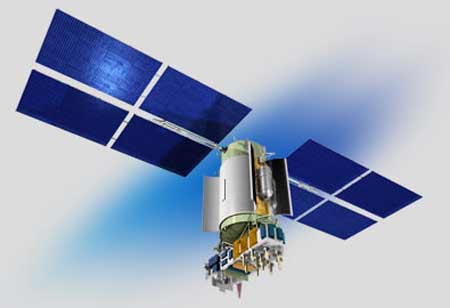Gps competitive market around the world
11 evening, the Japanese with an H2A rocket, the country's first navigation satellite "Guidance"was successfully put into orbit. This marks the construction of Japan also joined the independent satellite positioning system to the ranks. At this point people to see, after the United States, Russia, European Union, China, Japan and other major powers and countries have joined the League of satellite positioning system competition. India to be outdone, as early as April this year, announced to launch its own navigation satellite next year.
Not controlled by others, is a symbol of great power; the R & D strength, is a symbol of great power; have the ability to ensure economic development, is a symbol of great power; the maintenance of peace, deterrence, is a symbol of great power. Independent construction of the satellite positioning system, in a way, the concentration of all these symbols. Japan has always wanted to be normal power, no wonder that space research has been in the United States under its wings, but also seek to establish their own independent system. Once upon a time, space technology, technology seems to be just between the Russian patent. However, in the past 10 years, space exploration presents multi-polarization. Developed and launched from the satellite to planetary exploration, China, India, Japan, EU, Brazil, the figure emerging, some from from stove, and some vertical and horizontal, for a time, space development surging, and it has also become a great power game important battleground, the satellite positioning system is in competition arising under this background. Further, a large country or countries seeking great power status, a soft spot for the satellite positioning system, it is shown from the state mental strength, as well as the promotion of economic and technological development. Former French President Jacques Chirac at any time to vigorously promote the "Galileo" satellite positioning system of the building. He said there was no "Galileo" program, the European "will inevitably become a client, first and foremost science and technology, followed by industry and the economy." Therefore, the EU should withstand the difficulties. March 2003, "Galileo" satellite navigation system project was officially launched. Many countries joined the competition in satellite navigation and positioning, there is a security concern and helplessness. India announced in April this year to launch its own navigation satellite missile test last year in this subject stems from the "stimulus." India's "Brahmos" supersonic cruise missile test last January did not hit the target time, the U.S. Global Positioning System (GPS) at the critical moment "ball dropped" so that the missile failed to satellite positioning system receiver in the onboard computer and the United States to establish a connection between the satellite, resulting in "Brahmos" about 2 km away from the goal. This prompted the Indian designers to determine the future positioning in the world seeking to reduce dependence on U.S. satellites. GPS U.S. dominates for a long time, but for military and economic considerations, some of the key data and image services more clearly, it has reservations, not totally open. This is whether people have concerns about using the system stability. At first, the Japanese decided to develop the navigation satellite, it is no longer used because of concerns the U.S. GPS positioning system. As an economic power, Japan, the production of many products require the support of GPS, the satellite positioning system, there is no initiative to let others control equal to Japan's lifeline. Then, in 2001, the Government of Japan proposed the construction industry, "Quasi-Zenith Satellite System" for developing new business, which opened this satellite positioning systems engineering. Of course, as in Europe, the cost burden is difficult to reconcile such problems, the plans to spend a lot of years into the launch phase. The U.S. has the GPS global satellite positioning systems provide global coverage. United States, including the orbiting GPS satellites 24. But this system has been around for decades, relatively "old" for that. With the rapid development of global technology, and many newcomers can rely on new technology, a higher starting point in the design and navigation satellite systems. For example, Europe is developing the "Galileo" satellite positioning system, the 3 most accurate signal 10 times higher than the U.S. GPS to determine the error range of objects within one meter will be better than the U.S. GPS system error 10 m performance, and can provide real-time location information. In some Japanese cities, because the tall buildings, the U.S. GPS satellite positioning accuracy is often poor. Some places in the mountains, to receive the GPS satellite signal is insufficient to locate. By design, the Japanese "guide" satellite and its two "brothers" with the GPS satellite system with so dense high-rise buildings and mountains between the position to receive better quality signal to car navigation systems in such complex conditions and the general environment, the positioning accuracy within one meter. Hitachi plans to "lead" was applied to monitor the satellite's signal system to school children. In the tall buildings of the city, send and receive radio waves hampered due to the building, there will be current GPS error of 500 meters. With "Introduction" satellite signal, the error will be controlled at 10 meters range. |








 Last data update: 10.12.2011
Last data update: 10.12.2011